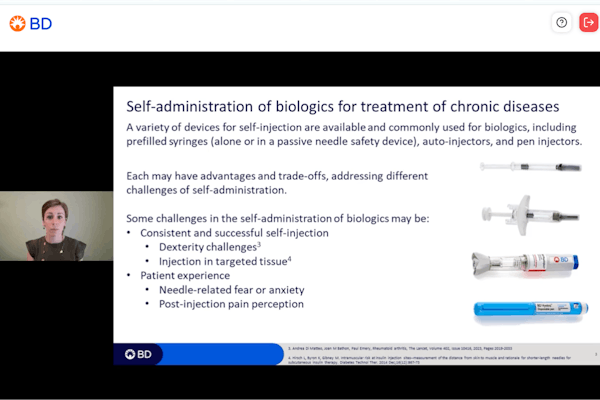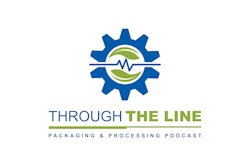
[Editor's note: This story originally ran June 4, 2019.]
But the agency keeps announcing new actions and initiatives, and polishing its approaches to various issues. Regulated businesses continue to see changes in various FDA programs and priorities.
Former commissioner Dr. Scott Gottlieb announced his resignation in March and has been replaced by an acting commissioner, Dr. Norman E. “Ned” Sharpless, in early March. The role of FDA commissioner requires Senate confirmation, but that step is skipped if the commissioner is only “acting.” It’s not yet clear when the Trump administration will nominate a commissioner for Senate confirmation.
“Acting” officials often do not implement new, aggressive policy approaches, but, as a quick review of some of FDA’s recent announcements makes clear, the agency nevertheless continues to do, if I may employ a technical legal term, boatloads of stuff.
Now, I must interject here that my traditional approach to gauging FDA’s general level of activity is to examine its enforcement statistics. And, with all due respect to past columns where I did that, those statistics always seem to tell the same story. The numbers may go up or down a bit in some respects, but it’s always the case that they are, relatively speaking, small. For example, while there are hundreds of thousands of FDA-regulated businesses worldwide, the agency only inspects less than maybe 20,000 each year (not including “Inspections conducted by States, pre-approval inspections, inspections waiting for a final enforcement action, and inspections of nonclinical labs,” notes FDA). Moreover, FDA only uses its biggest enforcement weapons—seizure, injunction, or criminal prosecution—in a handful of cases each year.
FDA recently has changed those stats a bit, though, because of changes in food safety law. Last year, the agency helpfully added to its website some new data about food companies to help other food companies verify that their suppliers are themselves compliant with law, as they must do under the Food Safety Modernization Act. The Data Dashboard segment of the website now has compliance and enforcement action information so you can check on a supplier.
Meanwhile, as for the generally high number of other FDA activities, here are some: In April, it announced new actions aimed at helping consumers identify problematic dietary supplements. In May, it announced new steps to improve breast implant safety. And the agency continues to have various active initiatives aimed at opioids, tobacco products, and also recently extended an invitation to the public to offer ideas about the future of cannabis products.
Also in April, it announced a long-term plan to upgrade its food safety practices to make them “smarter” by better use of enhanced technology and available data. It also announced a series of warnings to makers of ice cream, based on the findings of increased inspections. Heck, in late April the FDA website even got a makeover.
Fair’s fair: It should be noted that some of this “activity” consists of announcing delays in the enforcement of new requirements. For example, FDA also announced that it would wait until March 2020 to start checking for compliance with the new rules requiring some food companies to protect against “intentional adulteration” as part of routine inspections. It also postponed for a year, after industry appeals, a new reporting requirement for drug-device combination products.
If you are of the view that regulatory agencies are only effective when they promulgate regulations that order companies to do or not do certain things, then you might find FDA’s actions and announcements to be less than significant. My view is that regulatory agencies have influence on most regulated businesses even when they don’t pass mandatory regulations on a topic, so all these actions matter.
When it comes to enforcement, usually FDA puts in front of the line any product or company that is creating a genuine danger to public health or is egregiously fraudulent, but it also takes action against other types of violators, too, typically by putting them on notice of violations via a formal warning letter.
The reality of FDA’s life is and has always been that it doesn’t have the resources to inspect or take enforcement actions against all possible violators, so it has to make priorities for which ones it goes after. It often influences industry via policies and recommendations, and enhances consumer safety by sharing information with the public, rather than by making mandatory regulations.
Does this mean that lots of regulated businesses are getting away with breaking the law and putting public health at risk in the process? Not as commonly as you might think. A big part of the reason is that each business has several incentives to comply with FDA requirements, quite apart from whether they ever get into trouble with the FDA.
For example, (1) They have to worry about adverse publicity that would come with any product defect or problem, or the embarrassment of receiving a warning letter. (2) If a company sells to other businesses like retailers or brands, they might get disqualified as a supplier if they fail to keep FDA happy. (3) Any problem could lead to a loss of confidence of shareholders or private equity investors. (4) Many companies have to meet the standards of an international body, whose blessing the company needs in order to sell to those big retailers or brands. And (5) if anyone were to be injured by a product or even just misled by the product’s label claims, the company might face civil lawsuits for money damages.
Thus, even if FDA were to slow down its level of activity, smart companies wouldn’t get sleepy.
Eric Greenberg can be reached at [email protected]. Or visit his firm’s website at www.ericfgreenbergpc.com.
Hear Eric Greenberg’s podcast of this month’s column at pwgo.to/5113.
INFORMATIONAL ONLY, NOT LEGAL ADVICE.






















